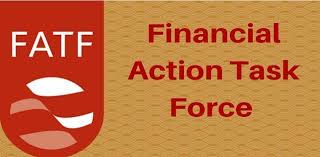FATF released its first global report on the illegal wildlife trade

The Financial Action Task Force (FATF) has released its first global report on the Illegal Wildlife Trade (IWT) namely, “Money Laundering and the Illegal Wildlife Trade”. In its first global report on the illegal wildlife trade, FATF has described it as a “global threat”, which is linked with other organised crimes like modern slavery, drug trafficking and arms trade.
Daily Current Affairs Quiz 2020
Key-Points
The illegal trade is estimated to generate revenues of up to $23 billion a year.
During the study, 22 of the 45 respondent countries considered themselves as source for wildlife crime, 18 as transit countries and 14 as destination countries. All but nine reported to be impacted by the risks from financial flows linked to the trade.
Criminals are frequently misusing the legitimate wildlife trade, as well as other import-export type businesses, as a front to move and hide illegal proceeds from wildlife crimes.
Jurisdictions should consider implementing the good practices. The report noted that in 2012, India amended the Prevention of Money Laundering Act removing a value threshold — of ₹30 lakh and above — that was earlier applicable to the wildlife trade predicates.
Financial Action Task Force
The Financial Action Task Force (on Money Laundering) (FATF) is an intergovernmental organization founded in 1989 on the initiative of the G7 to develop policies to combat money laundering
As a policy-making body, the FATF works to generate the necessary political will to bring about national legislative and regulatory reforms in these areas.
The FATF reviews money laundering and terrorist financing techniques and continuously strengthens its standards to address new risks, such as the regulation of virtual assets, which have spread as cryptocurrencies gain popularity.
The FATF monitors countries to ensure they implement the FATF Standards fully and effectively, and holds countries to account that do not comply.
FATF has maintained the FATF blacklist (formally called the “Call for action”) and the FATF greylist (formally called the “Other monitored jurisdictions”).